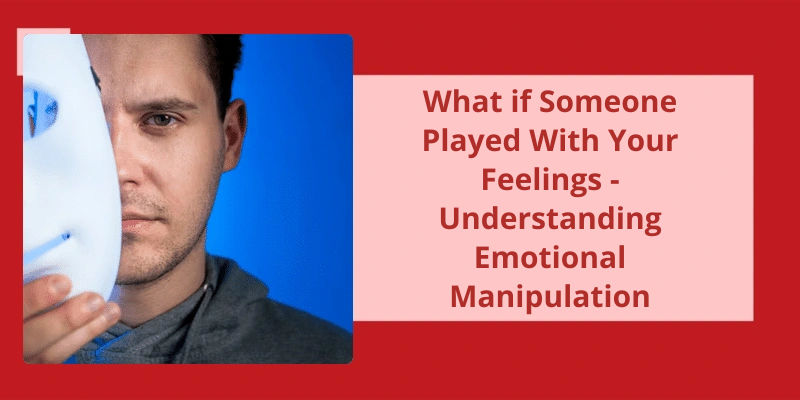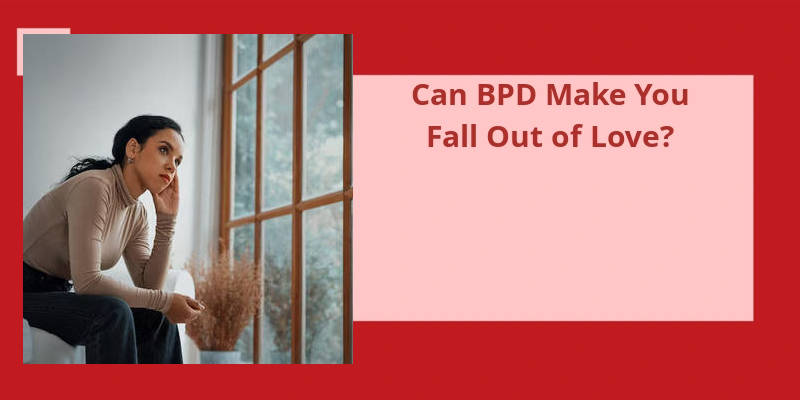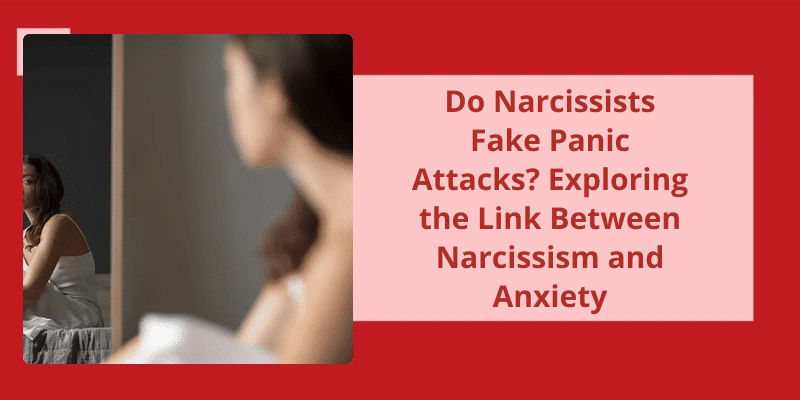Imagine the feeling of vulnerability, the deep trust you place in someone, and the hope that they reciprocate your emotions. What if those feelings were toyed with, used for a person's own amusement or gain? The impact of playing with someone's feelings can be devastating, leaving them feeling shattered and broken. The emotional turmoil can spread like wildfire, affecting relationships, work, and personal well-being. The truth is, we never know who we can fully trust with our hearts, and the consequences of that trust being shattered can be overwhelming. It's important to recognize the signs of emotional manipulation and protect ourselves from those who seek to use our vulnerabilities for their own gain.
What Does Playing With Someones Feelings Mean?
Playing with someones feelings is a form of emotional manipulation that can have serious consequences. It involves using someones emotions to gain an advantage or control over them. This can be done intentionally or unintentionally, but regardless of the motivation, it can lead to significant harm. People who engage in this behavior may be seeking attention, power, or control over others.
This can involve using emotional language to make someone feel bad about a decision or action they’ve taken. It can also involve using past mistakes or negative events to make the person feel responsible or guilty. This tactic can be especially damaging when used against someone who’s already vulnerable or struggling with low self-esteem.
This can involve using exaggerated or insincere praise to make someone feel good about themselves or their actions. It can also involve using compliments as a way to gain favor or control over the person. This tactic can be especially damaging when used against someone who’s seeking validation or approval from others.
This can involve using threats or intimidation tactics to control someones actions. It can also involve using stereotypes or biases to manipulate someones beliefs or opinions. This tactic can be especially dangerous when used against marginalized groups or vulnerable individuals.
It can damage trust, cause emotional distress, and harm relationships. If you suspect that someone is playing with your feelings, it’s important to seek support and resources to protect yourself and your emotional well-being. It’s also important to recognize when you may be engaging in this behavior and to seek help in addressing it.
Tips to Protect Yourself From Emotional Manipulation
- Trust your instincts and intuition
- Set boundaries and communicate them clearly
- Be aware of gaslighting and other manipulation tactics
- Don’t engage with manipulative people
- Get support from friends, family, or counselors
- Take care of your physical and mental health
- Practice assertiveness and self-confidence
- Learn about healthy relationships and red flags
- Avoid isolation and maintain a strong social support system
- Be wary of anyone who tries to control you or your decisions
Playing with someone’s feelings can be a painful experience, especially when the person on the other end isn’t being honest about their intentions. It can be confusing and frustrating to be emotionally invested in someone who isn’t reciprocating those feelings. Let’s take a closer look at the signs that someone is playing with your emotions and what you can do about it.
What Does It Mean if Someone Plays With Your Feelings?
Playing with someones feelings is a cruel and manipulative act that causes emotional turmoil and psychological trauma to the victim. It involves leading someone on, using them for personal gain, and then discarding them once they’re no longer useful. If someone is playing with your feelings, he’s treating you like a toy, with no respect for your emotions, feelings, and aspirations.
One of the most common signs that someone is playing with your feelings is inconsistency in their behaviors and actions. They may act sweet one day, distant the next day, and then shower you with affection the third day. This creates confusion, anxiety, and emotional instability, leaving you wondering where you stand with them. This behavior is a form of emotional manipulation, designed to keep you always on your toes, and never able to pin them down to a specific intention or commitment.
Another way someone can play with your feelings is by making promises or commitments they’ve no intention of fulfilling. They may say they love you, but then refuse to introduce you to their friends or family, never make plans for the future, or ignore your calls or texts. This creates false hope and expectations, leading you to believe that there’s potential for a deeper, meaningful relationship when, in fact, they’ve no desire or interest in pursuing one.
Playing with your feelings can also involve using you for personal gain, such as sex, money, or attention. They may make you feel good by showering you with attention or physical affection, but only when it benefits them. Once they’ve fulfilled their needs, they may leave you feeling used, unwanted, and disposable. This type of behavior is manipulative, selfish, and emotionally damaging.
Lastly, playing with your feelings can involve gaslighting, which is a form of psychological abuse. This involves manipulating your perception of reality, making you doubt your thoughts, feelings, and memories. For instance, they may deny saying or doing something hurtful, belittle your emotions, or accuse you of being overly sensitive or paranoid. This type of behavior is designed to confuse you, causing you to question your sanity and worth.
If you suspect that someone is playing with your feelings, it’s important to confront them and establish clear boundaries. Remember that you deserve to be treated with respect, honesty, and transparency. If they’re unwilling to give you the same level of commitment and emotional investment, it may be time to move on and find someone who values you for who you are, not what they can get from you.
How to Cope With the Emotional Toll of Someone Playing With Your Feelings
Dealing with the emotional toll of someone playing with your feelings can be difficult. It’s important to remember to take care of yourself and seek support from loved ones. It’s also helpful to acknowledge and validate your feelings, but not internalize or blame yourself for the actions of others. Practicing self-care, setting boundaries, and focusing on healthy relationships can also aid in coping with emotional distress.
Dealing with someone who plays with your emotions can be a tricky situation. It can feel overwhelming and frustrating, but it’s important to remember that you’ve the power to take control of the situation. Setting boundaries and distancing yourself from negative behavior can be the key to finding peace and moving past the pain. In this article, we will explore some effective strategies for handling emotional manipulation and protecting your well-being.
What Do You Do When Someone Plays With Your Feelings?
It’s important to remember that our feelings are our own responsibility. No one else is responsible for how we feel and we can’t control how someone else acts towards us. However, we can control how we react to their actions. If someone is playing with your feelings, it’s important to take a step back and evaluate the situation. Are they intentionally hurting you or are they unaware of the impact their actions are having on you?
If you determine that they’re intentionally playing with your feelings, it’s important to set boundaries to protect yourself. This may involve ending the relationship or taking a break until they can show they’re committed to treating you with respect. It’s okay to prioritize your own emotional well-being and decide that you deserve better than someone who’s playing games with your heart.
If you choose to confront the person about their behavior, it’s important to do so in a calm and respectful manner. Let them know how their actions are making you feel and what you need from them in order to continue the relationship. If they’re unwilling to change their behavior, it may be best to move on and find someone who’ll treat you with the love and respect you deserve.
Remember that you deserve to be with someone who values and respects you. Dont settle for someone who’s only interested in playing games with your heart. By setting boundaries and taking control of your emotions, you can move on from the situation and find someone who’ll treat you with the love and kindness you deserve.
How to Heal and Recover From Emotionally Abusive Relationships
Recovering from emotionally abusive relationships requires self-reflection, self-care, and seeking support from a qualified therapist or support group. It’s important to set healthy boundaries, identify patterns of behavior in the relationship, and practice healthy coping mechanisms to move on from the trauma. It’s a process that takes time and effort, but with the right resources and a commitment to healing, it’s possible to recover and move forward.
It’s important to recognize the signs of someone playing you because it can have a significant impact on your mental health and overall well-being. Being taken advantage of by someone you trust and care about can be incredibly hurtful and damaging to your self-esteem. In this article, we’ll explore the signs of being played, how it can happen, and what actions you can take to protect yourself.
What Does It Mean if Someone Is Playing You?
Being played often involves someone manipulating you for their own gain or enjoyment, without regard for your feelings or well-being. This could manifest in various ways, such as someone leading you on romantically while seeing other people behind your back, or using your kindness and generosity to constantly ask for favors or money. Essentially, when youre being played, someone is using your trust or vulnerability as a tool to benefit themselves, whether it’s for emotional validation, financial gain, or something else entirely.
If you suspect that youre being played, it’s important to take a step back and assess the situation objectively. Look at the evidence and behaviors that have made you feel this way, and consider whether they align with the actions of someone who truly cares about you and respects your feelings. It’s also important to remember that you’ve agency in the situation – you don’t have to continue allowing yourself to be played.
One thing you can do is communicate your feelings with the person who you suspect is playing you. Try to approach the conversation calmly and openly, and share specific examples of behaviors that have made you feel taken advantage of. It’s possible that the other person may not have realized the impact of their actions, and the conversation may lead to a positive change in your dynamics.
However, if the other person is unwilling to listen or make changes, it may be time to step back from the relationship and prioritize your own well-being. This can be difficult, especially if you’ve strong feelings for the person, but ultimately, you deserve to be treated with respect and care.
How Do You Deal With Someone Who Played With Your Feelings?
Every person deserves to be treated with respect and kindness, especially when it comes to matters of the heart. If someone has taken advantage of your feelings, it can be difficult to come to terms with what’s happened. However, it’s important to realize that you’ve the power to move on and heal from this experience.
When dealing with someone who’s played with your emotions, it’s crucial to set healthy boundaries for yourself. This means cutting off all contact with them, both physically and emotionally. It can be tempting to want to confront them and seek closure, but in reality, this may only prolong your pain and give them an opportunity to manipulate you further.
Instead, focus on your own well-being and surround yourself with supportive people who truly care about you. Engage in self-care practices such as meditation, exercise, and therapy to help process your emotions and move towards healing. Remember that it’s okay to grieve the loss of what could have been, but also recognize that you deserve better than someone who’d use you for their own gain.
It’s important to also avoid blaming yourself for what’s happened. While it’s natural to question whether or not you should have seen the signs of a player, it’s not your fault that someone else chose to act in a hurtful way. Focus on forgiving yourself for any mistakes you may have made, and recognize that you deserve to be treated with love and respect.
By cutting ties with them and prioritizing your own well-being, you can begin to move forward and find happiness again. Remember that you’re deserving of a healthy and fulfilling relationship, and don’t settle for anything less.
How to Rebuild Trust in Future Relationships After Someone Has Played With Your Feelings
Rebuilding trust in future relationships after someone has played with your feelings involves taking time to heal emotionally, setting clear boundaries and expectations, and being open and honest about your needs. It’s important to communicate your feelings and concerns with your partner and to give yourself time to fully trust again. It may also be helpful to seek support from a trusted friend or counselor. It’s possible to move past past hurts and build healthy, trusting relationships in the future.
Conclusion
It’s undeniable that playing with someone's feelings is a cruel and heartless act that can leave long-lasting emotional scars. Whether intentional or not, manipulating someone's emotions for personal gain is never justifiable. It’s essential to approach every relationship with empathy, honesty, and respect to avoid hurting others and maintain healthy connections. If someone chooses to play with your emotions, remember that it reflects their character and not your worth. It’s crucial to prioritize your emotional well-being and seek support from trusted friends and family or a qualified mental health professional. In an ideal world, everyone would treat each other with kindness and understanding to create a loving and compassionate society.






